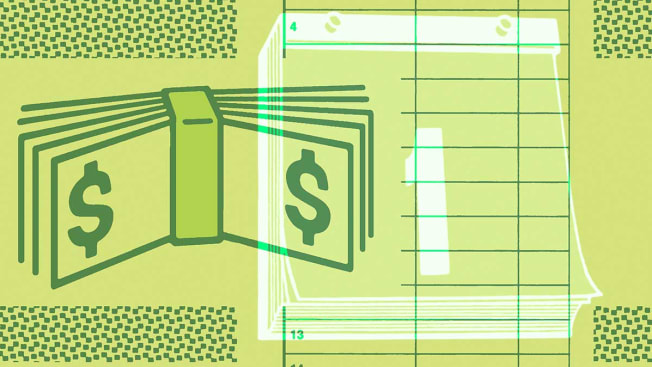What to Do If You're Having Trouble Paying Bills
During the coronavirus crisis, help with debts is available. But you have to ask.

The coronavirus pandemic has devastated the finances of millions of Americans who have lost jobs or seen their income reduced.
With the arrival of April, many now face mortgage payments, credit card bills and other debts that they might not be able to repay.
Some help is on the way. The recently enacted CARES Act will provide enhanced unemployment benefits and direct payments of as much as $1,200 for many adults, as well as a break on federal student loans.
But that assistance will take a few weeks to arrive, and some bills are due now. If you expect to have trouble paying off debts, there are several things you can do to keep your head above water.
Credit Cards
Most major banks, including Capital One, Citi, and JP Morgan Chase, are giving concessions to cardholders who are suffering financial hardship due to the coronavirus pandemic.
The accommodations may include deferring payments for a month or more, waiving fees, and arranging an extended payment plan.
Generally, these concessions are being worked out on a case-by-case basis, which will require you to contact a customer service representative, Rossman says.
One exception: Apple Card announced it is allowing all customers affected by COVID-19 to postpone payment by one month, with no interest being charged. You can find links to COVID-19 programs on your bank’s website.
Given the volume of requests being made right now, you will probably find it difficult to get through to the bank. But if you keep getting put on hold, don’t panic.
You generally have up to 30 days beyond the due date to pay off the balance without it hurting your credit score, so you may have more time to negotiate than you think, says Francis Creighton, president and CEO of the Consumer Data Industry Association, a trade association representing credit reporting agencies.
If you get a hardship accommodation, ask that your payments be marked current on your credit file, rather than delinquent. That will permanently ensure that your FICO score won’t be affected by late payments related to the COVID-19 pandemic, according to Greg Jawski, a spokesperson for FICO. Be sure to get the agreement in writing, in case the credit agency later makes a mistake.
If you can’t get a concession from your credit card issuer, try to at least make a minimum payment, which will help you maintain your credit rating, says Chi Chi Wu, staff attorney at the nonprofit National Consumer Law Center. If you can’t manage that much, your credit score will take a hit. But once you’re back on track, you’ll see it rebound.
Wu and other advocates, including CR Advocacy, would like to see stronger financial protections for consumers in the next economic stimulus bill being discussed by Congress, including a four-month moratorium on negative information appearing in credit reports.
Rent
For renters, options will vary widely, depending on where you live and the type of landlord you have.
In many states, including California (PDF), New York, and Texas, landlords have been ordered to suspend evictions for a few weeks to 90 days for renters who can’t pay because of COVID-19 issues.
The Department of Housing and Urban Development is also halting all eviction proceedings (PDF) for the 6.7 million tenants in properties it owns. Similarly the Federal Housing Finance Agency announced that Fannie Mae and Freddie Mac, which the agency regulates, will offer multifamily property owners loan deferrals if they promise not to evict tenants.
So check to see whether there are relief programs that apply to your area. Then reach out to your landlord and explain your situation, says Jay Abolofia, a certified financial planner in Weston, Mass.
“Given the financial crisis, with so many renters feeling strapped, you may find that the landlord is willing work with you, rather than try to find new tenants while everyone is sheltering in place,” Abolofia says.
Coronavirus Relief: Put People First!
Tell Congress to help families struggling to pay their bills.
Mortgages
The CARES Act gave a break to homeowners who have federally backed mortgages, such as those held by Fannie Mae, Freddie Mac, and other government sponsored agencies.
At the homeowner’s request, the agencies will grant forbearance, which allows mortgage payments to be postponed for up to 180 days. An additional 180 days is also available—again, upon request.
Borrowers are not required to provide proof of financial hardship to get the postponement.
If you don’t know if your mortgage is backed by a federal agency or government sponsored enterprise, check the loan look-up tool on the Fannie Mae website (800-2FANNIE) or try the look-up tool for Freddie Mac (800-FREDDIE).
Your mortgage servicer also may know—and you’ll need to contact them to take advantage of the new protections anyway, says Keith Gumbinger, vice president of HSH.com, a mortgage-information resource.
Be aware that some states have placed a moratorium on mortgage payments, as they have for renters. So check to see whether that relief applies in your area.
Utilities
Many states are barring utilities and other essential services from cutting off service during the coronavirus crisis.
A number of utilities, including Ameren, Con Edison, and Pacific Gas and Electric, also have ramped up assistance programs, which may offer deferred payment plans to those affected by COVID-19. Check your provider’s home page for its COVID notice.
Telecom companies are making a few, more limited concessions. Verizon, for one, says it is willing to waive some fees and promising not to cut off service for a certain period. Comcast is also promising no disconnects or late fees, as well as offering a new free internet service to low-income customers.
Once again, you will need to reach out to get these accommodations.
For those who are looking to free up some cash, now may be a good time to haggle with your internet provider.
“These companies are worried about losing customers during the pandemic,” says Abolofia, who recently negotiated a 50 percent reduction on his internet bill by threatening to disconnect service. (Consumer Reports offer tips on saving money by cutting the cable cord.)
Student Loans
Under the CARES Act, student loan borrowers will not have to make any payments for six months (through Sept. 30, 2020) on federal student loans, though that money will have to be paid later. Interest during the six-month period will be waived entirely.
Only certain federal student loans are eligible—those owned by the Department of Education, which include direct loans and loans made under the Federal Family Education Loans Program that were transferred to the DOE. Perkins Loans, FFEL loans held by a bank or another financial institution, and private student loans are not eligible.
Involuntary collection of defaulted student loans, including wage garnishment and claiming of tax refunds, will also be suspended. You can find more information and assistance on student loans at The Institute of Student Loan Advisors, a nonprofit group.
For borrowers who might not know whether their loan is federally held, your best strategy is to contact your loan servicer and ask whether you are eligible for the payment pause, says Mark Kantrowitz, publisher and vice president of research at Saving for College.
There are long hold times at the loan servicers right now, as with other customer call centers. Borrowers are encouraged to use the servicer’s website and the DOE Federal Student Aid website, at studentaid.gov, as much as possible.
If You Need More Help
If you’re feeling overwhelmed by financial difficulties, consider contacting a credit counselor to help put together an emergency budget and payment plan. Initial counseling sessions are free.
Go to the website of the National Foundation for Credit Counseling, a nonprofit organization, to find a counselor in your area.
You can also get free financial advice through the XY Planning Network, which is connecting volunteer certified financial planners with those who need help.
Search using the phrase “coronavirus relief” to find available planners. The planners can work online with clients regardless of their location.
—Scott Medintz contributed to this article
















